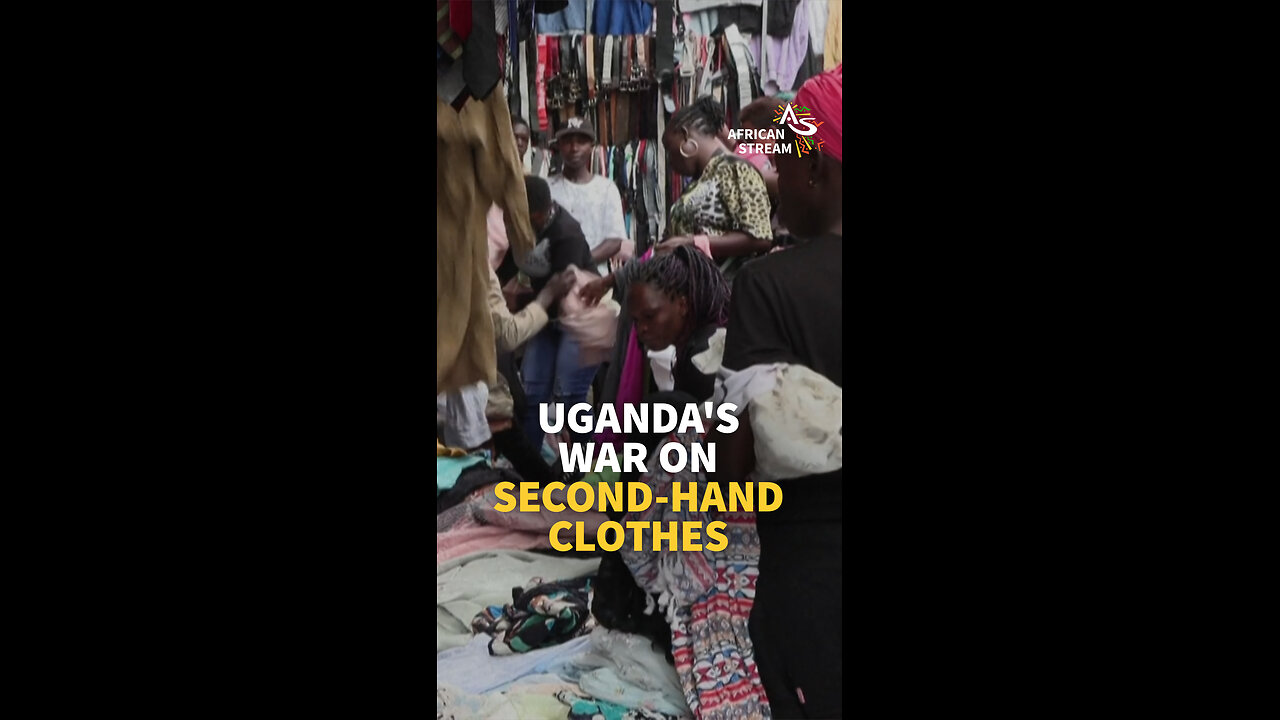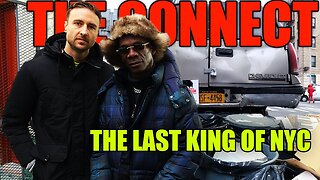Premium Only Content

UGANDA'S WAR ON SECOND-HAND CLOTHES
Although no official figures exist, the Uganda Dealers in Used Clothing and Shoes Association estimates that 16 million people, or one in three Ugandans, wear second-hand clothes. However, a potential government ban on the importation of used clothing may change that. The objective is to promote consumption of locally produced African-wear and Ugandan president Yoweri Museveni says that by protecting its local textile industry, the move will create thousands of new local jobs.
In 2016, Museveni sought to ban used clothing as part of an East African initiative to develop domestic industries. The policy faced significant opposition at the time. Initially, the East African Community regional bloc mounted a united front against the importation of used clothes but the alliance wavered after Kenya, Tanzania and Uganda backed off at the prospect of retaliatory loss of duty-free access to U.S. markets through AGOA, the African Growth and Opportunity Act. Ratified by the U.S. congress in May 2000, the stated goal of this piece of legislation was to assist sub-Saharan Africa economies, as well as improve economic relations between the United States and the region.
Rwanda decided to go it alone, imposing steep taxes on used clothing. In a tit-for-tat move, the U.S. retaliated, suspending duty-free benefits for made-in-Rwanda products. East Africa imports about an eighth of the world's used clothing but as the millions of hand-me-down clothes make their way from donation bins in the U.S. and Europe to East Africa, the trade stifles the growth of the continent’s own textile industry.
Whether Uganda’s proposed ban will be implemented remains to be seen. However, this time, President Museveni seems fully committed to live up to his promise.
-
 1:35
1:35
AfricanStream
1 day agoHOW THE U.S. STOLE HAWAII
1101 -
 LIVE
LIVE
The Bubba Army
2 days agoLA on FIRE! - Bubba the Love Sponge® Show | 6/09/25
5,578 watching -
 10:05
10:05
China Uncensored
19 hours agoChina’s Military Fears This One Thing
6.07K5 -
 10:08
10:08
Rethinking the Dollar
10 hours ago10 Brutal Signs America’s Economy Is Quietly Collapsing
3.44K7 -
 10:06
10:06
VSOGunChannel
15 hours ago $0.06 earnedCan the NRA Be Redeemed?
4.52K2 -
 1:27:49
1:27:49
TheDozenPodcast
17 hours agoPrison Officers WILL Die Soon | The Influx of Terrorists in Britain's Jails: Steve Gallant
3.9K3 -
 16:35
16:35
Alabama Arsenal
10 hours ago $0.03 earned338 ARC Out To 1000 Yards With The CMMG Dissent BR4
4.11K -
 15:53
15:53
Professor Gerdes Explains 🇺🇦
14 hours agoSpider Web 2.0: The Truth Emerging From the Fog of War
4.09K2 -
 LIVE
LIVE
Lofi Girl
2 years agoSynthwave Radio 🌌 - beats to chill/game to
1,265 watching -
 33:40
33:40
The Connect: With Johnny Mitchell
1 day ago $9.85 earnedVisiting The Most DANGEROUS Hoods Of New York City With A Former Crack Kingpin | The Connect
56.9K6